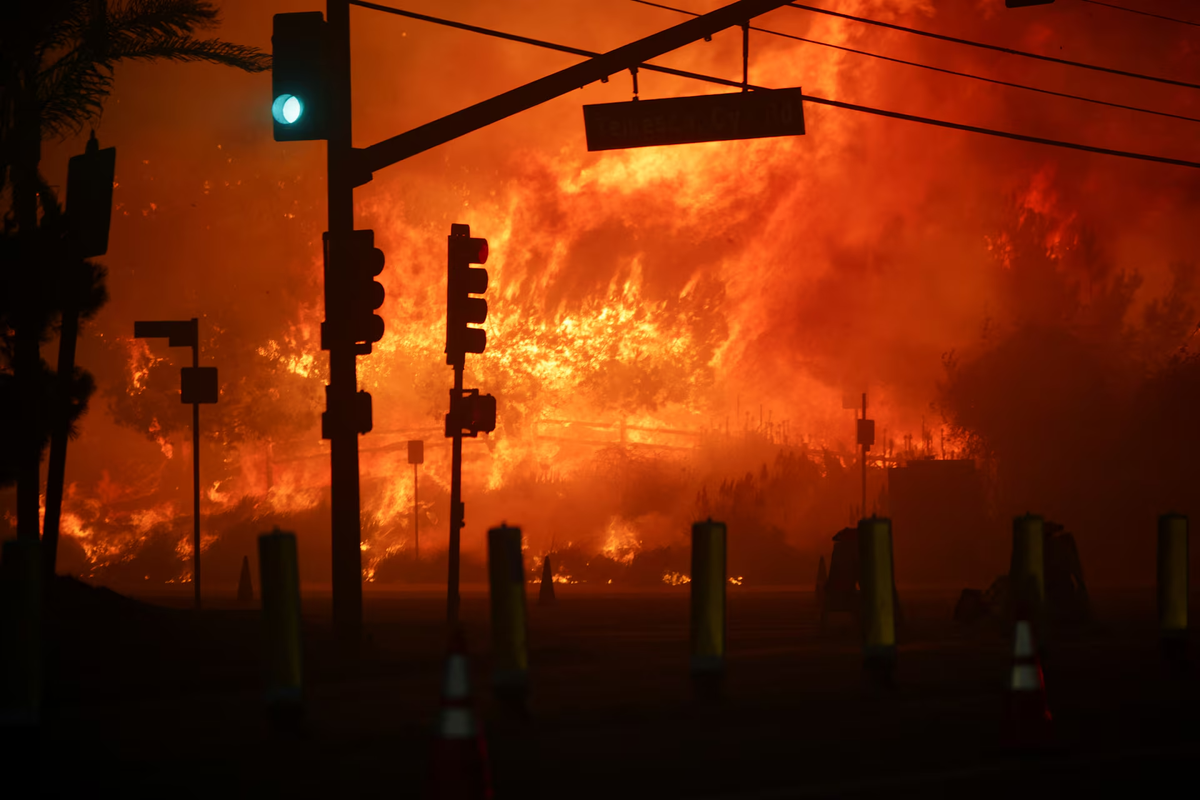When Climate Change Meets Climate Denial
As Trump prepares to take office promising to dismantle climate initiatives, 30,000 wealthy Angelenos are fleeing their homes beneath smoke plumes that shouldn't exist in winter.

January wildfires in Los Angeles feel like something out of a heavy-handed climate change allegory. As Trump prepares to take office promising to dismantle climate initiatives, 30,000 wealthy Angelenos are fleeing their homes beneath smoke plumes that shouldn't exist in winter. You couldn't write this scene without being accused of overdoing the symbolism.
The Pacific Palisades evacuation represents a uniquely American form of cosmic irony. Here's an enclave of some of America's wealthiest residents - the kind who fund political campaigns and shape policy - running from their burning mansions while their preferred politicians prepare to gut climate action. James Woods tweets about not knowing if his house is still standing, while the incoming administration he supported plans to treat climate change as a hoax.
The technical term for this is "consequences." But it's more interesting than simple comeuppance. What we're watching is the collision of two incompatible realities: the reality where climate change is a hoax, and the reality where January brings "about as bad as it gets in terms of fire weather" to Los Angeles.
The Getty Villa offers a perfect metaphor for this collision. The museum's priceless art collection remains safe because they acknowledged reality - they trimmed the brush and prepared for fires. Meanwhile, surrounding neighborhoods built on climate denial's borrowed time are burning. It turns out you can't negotiate with physics, even if you're very wealthy and live in a very nice neighborhood.
The evacuation itself tells a story about the limits of wealth as protection against climate reality. When the flames come, even the rich abandon their cars and flee on foot. There's something almost Biblical about this leveling - the pedestrian exodus from Topanga Canyon doesn't discriminate between Tesla and Toyota.
The darkest irony isn't just that climate change is burning the homes of climate deniers. It's that the very wealth that allowed people to insulate themselves from previous consequences - to build beautiful homes in fire-prone canyons, to fund politicians who promised to protect their tax rates rather than their coastlines - has become irrelevant in the face of basic physics. Money can buy a lot of things, but it can't buy a new canyon exit when you need one.
Biden's grounded Air Force One adds another layer to this theater of the absurd. The outgoing president, who tried to act on climate, can't fly to create new national monuments because the climate-intensified winds are too dangerous. Meanwhile, the incoming president, who calls climate change a hoax, prepares to take power as California burns in what should be its wet season.
This isn't just about schadenfreude, watching wealthy climate deniers reap what they've sown. It's about the collision between constructed reality and actual reality. You can deny climate change in your political donations, in your voting booth, in your media consumption. But when the fire comes, it doesn't care about your position papers or your campaign contributions.
The Pacific Palisades fire is showing us something important about the future of climate denial. As impacts become more immediate and undeniable, the question isn't whether reality will win - it's how much damage we'll sustain before we admit it's winning. The wealthy evacuees fleeing Topanga Canyon might return to rebuild, might continue funding climate denial, might persist in their constructed reality. But each time they have to evacuate, each time the fires come earlier in the season, reality's argument gets a little harder to deny.
Climate change isn't waiting for permission from its deniers anymore. The fires don't care about your political affiliation. The winds don't check your donation records. And nature, it turns out, isn't interested in alternative facts.


